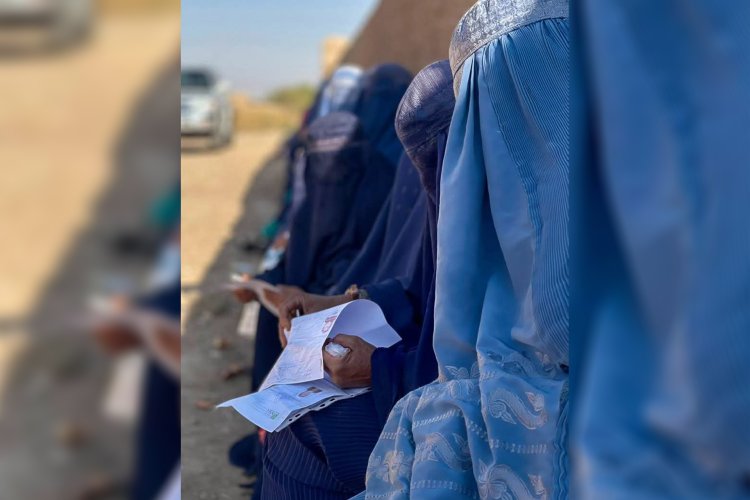Herat Under the Burqa: Taliban’s New Edict Imposes Severe Restrictions on Women

It has been a week since the Taliban issued an official directive in Herat, banning women without burqas from entering government offices and the regional hospital.
Although the Taliban claimed Sunday, November 9 that no such directive had been issued, sources and documents confirm the order is real, and officials from the Ministry for the Promotion of Virtue and Prevention of Vice are strictly monitoring its enforcement.
From Wednesday to today (November 5–11), dozens of women who went to the regional hospital for work or medical treatment have been left standing outside its gates.
On Wednesday, November 5, Maryam, an 18-year-old young woman, arrived at the hospital to visit her father, who had been hospitalized for two nights. A group of women stood at the entrance—some holding prescriptions, others standing beside their sick relatives.
Maryam says, “I told them I only wanted to drop off my father’s medicine and clothes, but they didn’t let me in. One woman pleaded, saying her patient was in the emergency ward. The Taliban said, ‘Without a burqa, it’s impossible.’ When a few women resisted, the officers came at us with sticks.”
But the restrictions have not only targeted visitors. According to sources, female doctors and staff members at the hospital have also been forced to wear burqas.
A source inside the regional hospital told R.M. Media that on Saturday, November 8, about forty burqas were distributed among staff in one medical department, with plans to increase the number to two hundred.
The source added that the Taliban’s Department for the Promotion of Virtue and Prevention of Vice had ordered all female doctors and employees to wear burqas: “Even the Arabic-style hijab is not accepted. Every woman who enters the hospital—whether a doctor, nurse, patient, or cleaner—must wear a burqa.”
Reports indicate that the Edict is not limited to government offices but has also been extended to educational and religious institutions.
In some religious schools, wearing a burqa has become mandatory for female students.
Samira, a seventh-grade student at Ghyasiya School, says, “On Thursday, before class started, several officers from the Department for the Promotion of Virtue and Prevention of Vice came and said that from tomorrow, anyone without a burqa will not be allowed to enter. We were shocked. Some girls started crying; others said they wouldn’t come anymore. I didn’t know what to do—on one hand, I can’t wear a burqa; on the other, I don’t want to stay home.”
Beyond schools and government offices, daily life in the city has also been affected.
On Wednesday, the Taliban held a meeting with representatives of shops and markets in Herat, instructing them to prevent women without burqas from entering. In some areas, taxi and rickshaw drivers have also been ordered not to pick up women who are not fully covered.
As these restrictions spread across Herat, fear and anxiety among women and girls continue to grow.
Husna, a 19-year-old, says she went out with her mother on Thursday morning to buy groceries: “We went out wearing Arabic hijabs and masks. My mother even packed an extra prayer shawl just in case. The streets were much emptier than usual, and there were far more women wearing burqas. No one said anything, but it felt like everyone was staring at us. I’m afraid of what’s coming—soon we might not even be able to go out like this.”
In recent days, public life in Herat has been overshadowed by fear and tension. Many women say that the implementation of this Edict has severely restricted their lives, making it difficult to work or carry out daily tasks.
A women’s rights activist, who asked not to be named, says, “With this Edict, the Taliban have given us two choices: either submit to compulsory covering or stay home. In both cases, they achieve their goal—to erase women from public life.”
